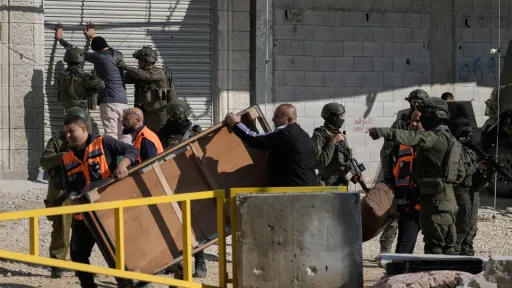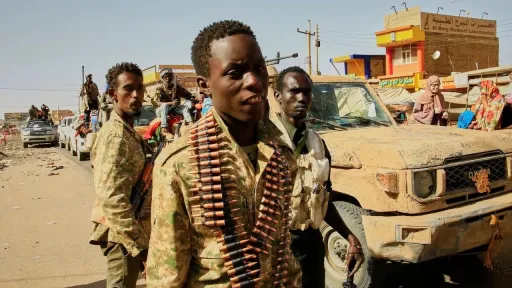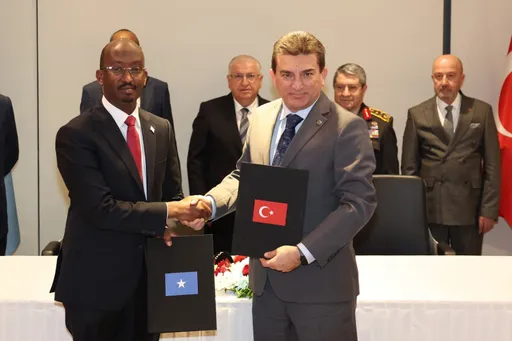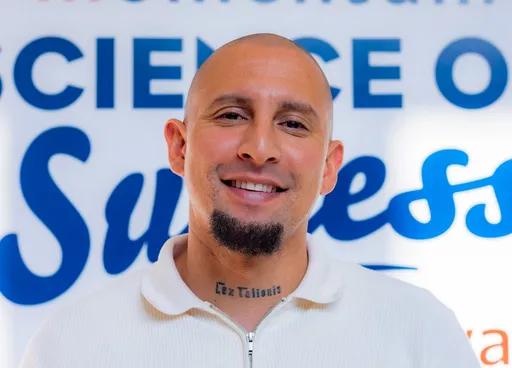By Charles Mgbolu
Port Harcourt was once the ‘Garden City’, one of Nigeria’s most beautiful urban centres filled with greenery and flower-bedecked parks.
But the story turned dark and black for the capital of Rivers State very soon, as an ecological disaster unfolded in Nigeria’s fifth-largest city with a population of over three million.
Illegal oil refineries run by unskilled people with primitive tools belched thick plumes of black smoke into the skies of Port Harcourt.
Black soot – the result of incomplete combustion of crude oil – hung in the air and formed a thick layer everywhere, from homes to humans.
People suffered from a sharp rise in respiratory diseases. Many deaths have been linked to the black soot.
It took an extraordinary effort and perseverance by a group of residents – led by four men – to put the global spotlight on the suffering of Port Harcourt. It took six long years for their efforts to show results.
This is their story as much as it is the story of Port Harcourt.
“It was a hard-fought battle lasting six years,” says Amah Onyedikachi, a 38-year-old student-researcher and one of the four campaigners.
“We tweeted every day. We called on Port Harcourt residents to say no to the soot,” Amah tells TRT Afrika.
Bad air day, every day
The problem of Port Harcourt in southern Nigeria became an issue of public discussion when black soot first became visible around 2016.
It was a period when illegal refining became rampant in the Niger Delta area, particularly in the coastal swamps of Port Harcourt.
High unemployment in the Niger Delta drew scores of young men to the highly lucrative business in which they illegally tapped crude from a maze of pipelines owned by private and state-owned oil majors.
Some illegal refiners even built their own pipeline network buried deep underground to transport the crude funnelled from government pipelines.
The crude is “refined” under high temperatures and condensed into different products – mostly kerosene and diesel.
The refined product is sold in the nation’s black market and even exported.
According to the Nigeria Extractive Industries Transparency Initiative’s oil and gas report for 2022, the country lost 619.7 million barrels of crude oil valued at $46.16 billion between 2009-2020.
According to a report by the Organisation of Petroleum Exporting Countries (OPEC), Nigeria dropped two places on the African leaderboard of crude producers, behind Angola and Libya, in September last year. Nigerian authorities had blamed this on massive oil theft.
As of January 2023, Nigeria was back at the top, but only after authorities intensified efforts to trace and dismantle illegal taps.
Amah recalls the first time he saw the soot in his home, back in 2016.
“It was as if someone had sprinkled ash everywhere inside my house, on my bed-net. I remember touching it and asking myself, ‘what is this?’,” he says.
But he didn’t have to look far for the answers as one of his close friends, Kingsley Adindu also faced the same problem.
“I knew it was soot as soon as I touched it. It felt smooth, like smooth dust, but then it stains every surface,” recalls Adindu, 37, an environmentalist and one of the four activists.
It was these concerns about the environment and the effects on people’s health that led to the launch of the online campaigns.
Forty-eight-year-old Tunde Bello became an accidental environmental activist when he created a Facebook page, and the Twitter handle @StopTheSoot to create awareness of the problem.
His inbox was filled with pictures sent in by residents, showing soot in their homes. Many took shots of their blackened hands and feet. Some of the citizen videos captured footage of soot nearly obliterating daylight and masking the city in a dense fog.
Amah, Eugine Abels and Kingsley Adindu also took up the cause separately but later banded together to make a united and more forceful campaign, helping drive robust debates around the soot problem.
In his late fifties, Eugine spoke extensively at multiple environmental forums, both on and offline, on the long-term health and ecological impact of soot.
Kingsley was known for constantly giving health and safety tips online on how to deal with exposure to soot.
They also staged a peaceful protest in 2018 along with hundreds of Port Harcourt residents.
Within a month of the campaign, as public pressure grew on the authorities to act, the Rivers State government set up a task force to address the issue. The group officially identified the mysterious particle as black soot.
Decisive action against illegal refining was, however, still far away.
A silent killer
“Black soot is the by-product of incomplete combustion,” says Dr Selegha Abrakasa, a particle physicist at the University of Port Harcourt.
“Because illegal refiners use crude equipment in the oil refining process, they end up releasing a lot of by-product waste into the atmosphere in the form of black soot,” Abrakasa tells TRT Afrika.
Also known as particle pollution, soot is one of the deadliest forms of air pollution.
A team of paediatricians at the Department of Pediatrics, University of Port Harcourt Teaching Hospital, led by Dr Agnes Fienemika, researched the prevalence of acute respiratory infections (ARI) among children under five in Port Harcourt for two years.
They used reported cases at a local children’s hospital as a test sample and found an increase in the prevalence of ARI cases among children under five between September and December 2016.
Dr Fienemika’s team found that the 2016 period coincided with the first sightings of black soot in Port Harcourt. Their findings were published in the Journal of Respiratory Medicine in 2018.
Professor Best Ordinioha, a public health specialist at the University of Port Harcourt Teaching Hospital, tells TRT Afrika that soot could trigger deadly allergic reactions.
“The immediate effect of breathing in soot includes asthmatic attacks, especially for asthmatic patients and people with cardiac and lung problems.”
Ordinioha adds that inhalation of soot also increases the risk of cancer among people.
Save the children
Amah says that during the initial days of their campaign, they focussed on children.
“We began to tweet directly to schools, sharing posts on how to protect children.
“There was a lot of engagement on social media and, shockingly, criticism as well. Some people accused us of exaggerating the problem,” Amah says.
Kingsley Adindu experienced the effects of soot on children first-hand.
“I spent every other week at the hospital for the same problems of my child - cough and catarrh. I spent a lot buying medications and paying hospital bills. It was frustrating,” Adindu tells TRT Afrika.
Adindu says his children’s health has now improved.
“I used to take my children (a boy, then aged 4, and a girl aged 1) to the hospital at least once every week due to respiratory infections. But we’ve had no reason to go since the start of this year.”
Eugene says he was stunned when he read up on the toxic metal components found in soot.
“I found it had carcinogens and mercury. I panicked because of the poor state of our health services. This was a death sentence on the people,” Eugine adds.
Last year, the state government again began raiding illegal refinery sites.
At least 16 people involved in the illegal trade were arrested, and 19 more were declared wanted.
Over 100 illegal refinery sites were destroyed in different locations across the state. Most raids occurred in the Khana Local Government Area, where at least 20 illegal oil refinery sites were destroyed.
“Some of these illegal oil miners were heavily armed and opened fire at us when security forces approached their location before escaping into the swamps,” Bariere Thomas, Local Council Chairman of Khana Local Government Area, tells TRT Afrika.
“Following the multiple raids, the air quality has significantly improved, and we no longer see the heavy sediments on cars and on floors in our homes. Cases of allergic reactions have also significantly reduced. We plan to conduct a thorough assessment and air quality tests to measure how much cleaner our air has become.”
Residents across Port Harcourt also corroborate this.
Victor Alali, who lives in Borokiri in the heart of the city, tells TRT Afrika, “I have observed significant difference as regards the soot on my windows. I no longer see droppings of particles at dawn as I used to every day”.
Ebenezar Wikina, another resident, adds: “For the first time in a long while, I no longer think of an uncertain future. The air is much cleaner.”
Battle far from over
But Abrakasa warns that it’s too early to celebrate.
“The government must ensure that the illegal oil miners are not allowed to resurface. If they do, then everything would have been for nought.”
Ebenezar agrees, pointing to reports that “there are still some illegal refining sites operating in remote areas undisturbed, so this needs to be checked”.
The wakeup call from Amah and his co-campaigners may have eventually paid off, but even they too agree that their fight is far from over.
“We know it may only be a matter of time. But we will be here… waiting, and we will stop them over and over again,” Amah adds.
























